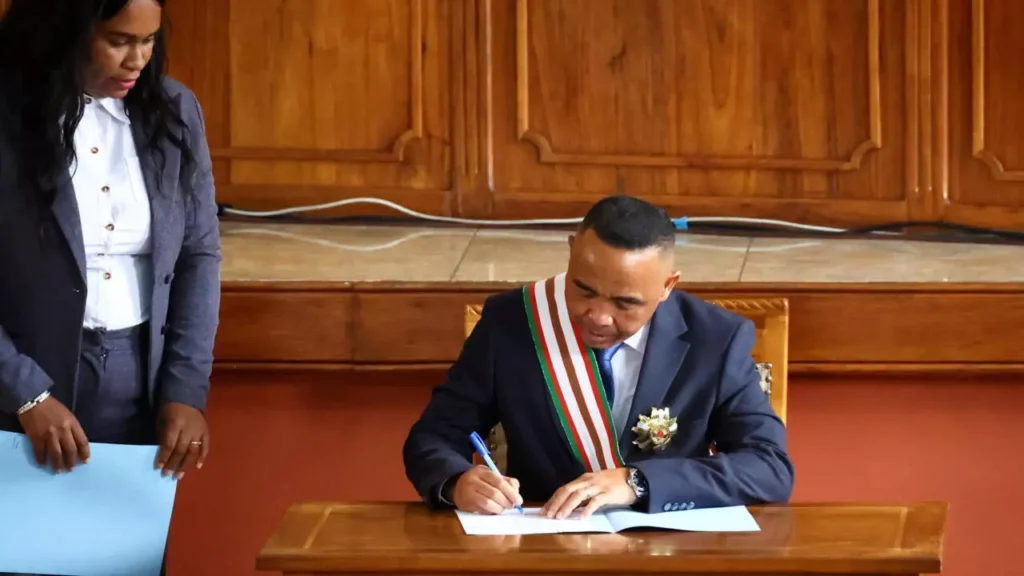Madagascar’s political landscape has shifted dramatically as Colonel Michael Randrianirina, commander of an elite army unit, was sworn in on Friday as the nation’s new president following a military coup earlier this week.
The ceremony took place in the main chamber of the High Constitutional Court, where Randrianirina took the oath of office, pledging to “respect and safeguard the constitution and the rule of law.”
In his inaugural address, Randrianirina described his rise as a turning point for the country, vowing to deliver transformative leadership and restore the people’s trust in governance.
“Today marks a turning point for our nation, for the Malagasy people themselves are thirsting for profound change in the way our country is governed,” he declared. “We give our solemn assurance to break away from the harmful practices of the past and rebuild the system of governance to align with the true aspirations of the people.”
Military Takeover and Aftermath
The colonel’s ascent comes three days after the military seized power, ending weeks of anti-government protests driven largely by young people frustrated over economic hardship, corruption, and service failures.
Deposed President Andry Rajoelina fled the country following the coup, and his current whereabouts remain unknown.
In a televised address, Randrianirina announced that Madagascar would be governed by a military council for an 18 to 24-month transitional period, after which new elections are expected.
The United Nations and African Union have both condemned the coup, with the latter suspending Madagascar’s membership pending a return to constitutional rule.
Youth-Led Uprising
The uprising that paved the way for Randrianirina’s rule began last month with protests over power and water shortages but quickly evolved into a broader movement demanding systemic change.
Rabemanantsoa Emmanuel, one of the young demonstrators who witnessed the inauguration, told reporters the coup reflected widespread youth frustration. “The previous administration ignored the voice of young people. This is the consequence,” he said.
Rakotoarisoa Alban, a local councilor, described the new administration as “a victory for all Malagasy people,” expressing cautious optimism that the military-led government could restore stability and accountability.


